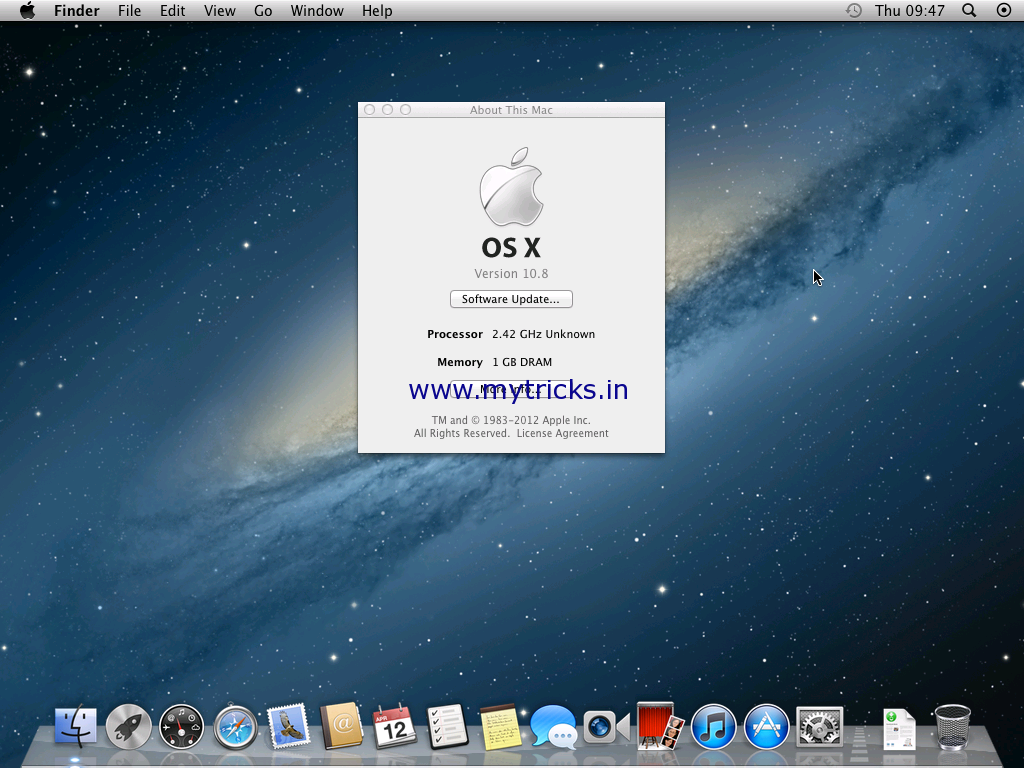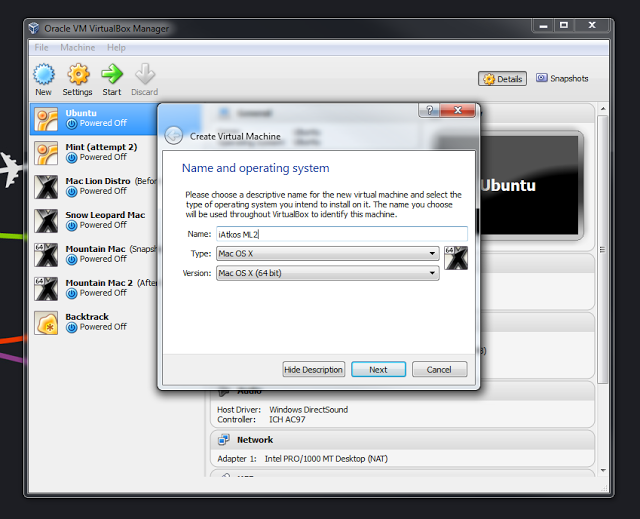

- #Virtualbox mac os x mountain lion download how to
- #Virtualbox mac os x mountain lion download for mac os x
In order to make networking work from within Haiku you will also need to change the virtualised networking card to any of the Intel ones. Navigate to System -> Processor and increase the processor(s) to 2.

To do this right click on the created virtual machine and choose settings. A simple fix is to enable dual processor support. However, Haiku occasionally locks up on the boot loader screen. The default settings of Virtualbox work perfectly fine. Select the file named haiku-r1alpha3.vmdk (or similar on later releases). Click the folder icon to the right on the drop down and browse to the location on your downloaded and unpacked Haiku folder. On the Virtual Hard Disk ensure that Start-up disk is checked and select "Use existing hard disk". Set the memory according to your host computer but 512MB should be enough for a comfortable Haiku install. Set the operating system to Other and version to Other/Unknown. Start up Virtualbox and click to create a new virtual machine. Put this somewhere safe: this will hold your Haiku install. zip file and double-click to unpack to a folder. The simplest way to get Haiku running in Virtualbox is to download the pre-built VM image. While Virtualbox is installing download a copy of Haiku. Double-click on Virtualbox.mpkg to start the installation.
#Virtualbox mac os x mountain lion download for mac os x
To run Haiku on top of Mac OS X first download and install Virtualbox.ĭownload the version of Virtualbox for Mac OS X and open up the. You might need to tweak some settings on other hardware/OS versions. This has been tested on Mac OS X 10.8 (Mountain Lion) MacBook Air.
#Virtualbox mac os x mountain lion download how to
Here we describe how to run a Virtualbox hosted Haiku OS on Mac OS X. Inspired by the Be Operating System, development began in 2001, and the operating system became self-hosting in 2008 with the first alpha release in September 2009, the second in May 2010 and the third in June 2011. Haiku is an open source operating system currently in development that specifically targets personal computing.


 0 kommentar(er)
0 kommentar(er)
